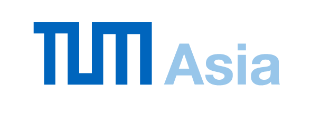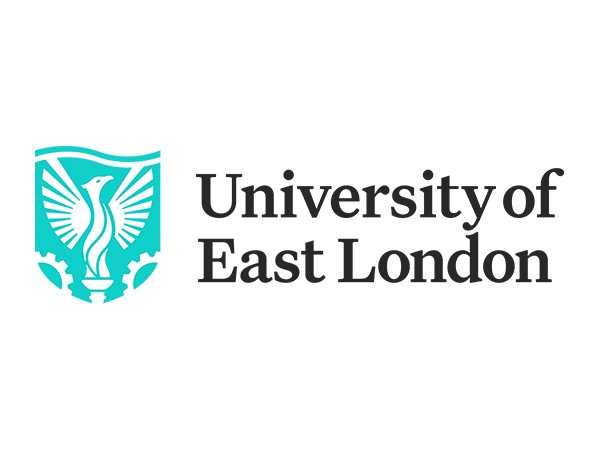Railway Engineering: Building the Tracks to Global Careers
Railway Engineering is a specialized branch of civil engineering that focuses on the design, construction, maintenance, and operation of railway systems. In an era where sustainable transportation is key to economic growth, this field offers exciting opportunities for innovation and problem-solving. For Indian students aspiring to study abroad, pursuing Railway Engineering can open doors to world-class education, cutting-edge research, and high-demand jobs in both international and domestic markets. With India's ambitious railway modernization plans under initiatives like Vande Bharat and bullet trains, expertise in this area is more valuable than ever.
Why Choose Railway Engineering Abroad?
Studying Railway Engineering overseas provides access to advanced technologies, state-of-the-art facilities, and industry collaborations that may not be as readily available in India. Countries like the UK, USA, Australia, and Canada lead in rail infrastructure, offering hands-on experience with high-speed rails, smart signaling systems, and eco-friendly designs. As an Indian student, you'll gain a global perspective that aligns perfectly with India's growing rail sector, projected to create millions of jobs by 2030.
- Global Exposure: Learn from experts involved in projects like Europe's Eurostar or Japan's Shinkansen.
- Practical Training: Many programs include internships with rail giants like Siemens or Alstom.
- Sustainability Focus: Emphasize green engineering to address climate challenges in rail transport.
- Career Boost: International degrees are highly regarded by Indian Railways and private firms like L&T.
Course Overview
A typical Bachelor's in Railway Engineering or Master's in Railway Systems Engineering spans 3-4 years for undergrad and 1-2 years for postgrad. The curriculum blends theoretical knowledge with practical applications, covering everything from track design to traffic management.
Core Modules
| Module | Description | Key Skills Gained |
|---|---|---|
| Railway Track Design and Construction | Principles of alignment, geometry, and materials for durable tracks. | Geotechnical analysis, surveying techniques. |
| Signaling and Control Systems | Modern signaling technologies, including ETCS (European Train Control System). | Electronics, automation, safety protocols. |
| Railway Operations and Management | Planning timetables, resource allocation, and logistics. | Project management, data analytics. |
| High-Speed Rail Engineering | Design challenges for speeds over 200 km/h, including aerodynamics. | Structural dynamics, wind tunnel testing. |
| Sustainable Railway Infrastructure | Integrating renewables and reducing carbon footprints in rail networks. | Environmental impact assessment, green materials. |
Advanced programs often include electives like Urban Rail Transit (metro systems) or Freight Railway Logistics, tailored to global needs. Expect lab work, simulations using software like MATLAB or RailSys, and field visits to operational railways.
Eligibility Criteria for Indian Students
To enroll in Railway Engineering programs abroad, Indian students need a strong academic foundation. Requirements vary by country and university, but here's a general guide:
- Academic Qualifications: For Bachelor's, 10+2 with Physics, Chemistry, and Mathematics (minimum 60-70% aggregate). For Master's, a B.Tech/B.E. in Civil/Mechanical Engineering with 55-65% marks.
- Entrance Exams: IELTS (6.5+ overall) or TOEFL (80+), plus GRE for some US programs. No specific rail entrance test is required.
- Work Experience: Preferred for Master's; 1-2 years in civil engineering boosts applications.
- Documents Needed: Transcripts, SOP (Statement of Purpose) highlighting interest in railways, LORs (Letters of Recommendation), and passport.
Tip for Indian Applicants: Highlight projects related to India's rail network in your SOP to stand out.
Top Destinations and Universities
Choosing the right country can shape your career. Here's a comparison of popular destinations:
| Country | Top Universities | Program Highlights | Tuition (Annual, Approx. in INR) | Post-Study Work Visa |
|---|---|---|---|---|
| UK | Imperial College London, University of Birmingham | MSc in Railway Engineering; strong industry links with Network Rail. | 20-25 lakhs | 2 years |
| USA | University of Illinois Urbana-Champaign, Purdue University | MS in Transportation Engineering with rail focus; research on maglev tech. | 25-35 lakhs | OPT up to 3 years (STEM) |
| Australia | University of Sydney, RMIT University | Master of Engineering (Rail); emphasis on freight systems. | 18-22 lakhs | 2-4 years |
| Canada | University of Toronto, McGill University | MEng in Railway Engineering; cold-climate rail expertise. | 15-20 lakhs | 3 years |
| Germany (Low-cost option) | Technical University of Munich, RWTH Aachen | Free tuition for internationals; focus on high-speed engineering. | 5-10 lakhs (living costs) | 18 months |
Germany is ideal for budget-conscious Indian students due to nominal fees, while the UK offers prestige and shorter programs.
Career Opportunities and Salary Prospects
Graduates in Railway Engineering are in high demand worldwide. In India, the sector is booming with projects worth over ₹2 lakh crore. Key roles include:
- Railway Design Engineer: Designing tracks and bridges; salary in India: ₹6-12 lakhs/annum, abroad: ₹40-60 lakhs.
- Signaling Specialist: Implementing safety systems; India: ₹8-15 lakhs, abroad: ₹50-70 lakhs.
- Project Manager: Overseeing rail projects; India: ₹10-20 lakhs, abroad: ₹60-90 lakhs.
- Research Analyst: Innovating sustainable tech; opportunities at IRCTC or global firms like Bombardier.
- Consultant: Advising on metro expansions; freelance potential in India's smart cities.
Global Job Market: With the rise of Belt and Road Initiative, experts are needed in Asia and Africa. Returning to India? Indian Railways recruits through UPSC IES, valuing foreign degrees. Average starting salary for freshers abroad: $70,000-$90,000 USD (₹58-75 lakhs).
Benefits of Studying Abroad for Indian Students
Beyond academics, studying Railway Engineering abroad builds resilience and networks. You'll experience multicultural environments, enhancing soft skills crucial for engineering leadership. For Indians, it's a chance to contribute to national development—many alumni lead projects like the Mumbai-Ahmedabad Bullet Train.
- Financial Aid: Access scholarships covering 20-100% tuition.
- Cultural Adaptation: Programs offer orientation for international students.
- Visa Pathways: Easy PR options in Canada/Australia for skilled engineers.
- Networking: Join Indian student societies for support.
Scholarships and Funding Options
Indian students have several avenues for funding:
- Commonwealth Scholarships (UK): Full coverage for Master's; apply via British Council.
- DAAD Scholarships (Germany): Monthly stipend of €934; no tuition fees.
- Fulbright-Nehru (USA): For postgrad; covers travel and living.
- Endeavour Scholarships (Australia): Up to AUD 272,500 for full program.
- Indian Government Schemes: ICCR for Asia/Africa studies; education loans from SBI at low interest.
Start applications early—deadlines are 6-12 months before intake. Use platforms like Studyportals for more options.
Application Process: Step-by-Step Guide
Navigating applications can be daunting, but here's a streamlined approach:
- Research Programs: Use QS Rankings or university websites; shortlist 5-7 options.
- Prepare Documents: Get transcripts attested by AIU; write a compelling SOP (500-1000 words).
- Take Exams: Book IELTS/TOEFL 3-6 months in advance.
- Apply Online: Via university portals; fees ₹5,000-10,000 per application.
- Secure Visa: After offer letter, apply for student visa with proof of funds (₹10-15 lakhs).
- Pre-Departure: Arrange accommodation, health insurance, and attend webinars.
Pro Tip: Consult education agents certified by ICEF for personalized guidance.
Conclusion: Embark on Your Rail Journey
Pursuing Railway Engineering abroad is not just about earning a degree—it's about engineering a brighter future for transportation worldwide. With India's rail revolution underway, your international expertise will be a game-changer. Take the first step today: explore programs, prepare your profile, and connect with alumni. The world of rails awaits!
For more details, visit our resources page or contact our counselors.


